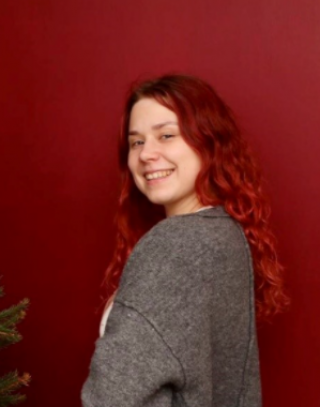Find out about the experiences of one of our current postgraduate students, Veera Mikola

My name is Veera, and I am a PhD student at the high energy physics group. I was born and raised in Finland, and I moved to the UK at age 19 to do my undergraduate degree at University of Warwick.
I applied to quite a few universities for my PhD, and I got to visit multiple departments and be interviewed by them. UCL stood out as the best choice after the interviews - the atmosphere felt very relaxed and friendly. The whole research group is very inclusive and diverse, which was important to me as well (as being both a woman and non-British). In the department I can be myself, dress the way I want and be taken seriously and as a part of the group as a valuable member! I also knew I wanted to work on neutrino physics and UCL had fantastic options in terms of neutrino experiments to work on!
I work on two experiments: DUNE (Deep Underground Neutrino Experiment) and NoVA (Numi Off-Axis νe Appearance). Nova is a currently running neutrino oscillation experiment, whereas DUNE is a future experiment currently being built, and will use new technologies (namely liquid argon TPCs) in its detectors. Neutrino oscillations as a phenomenon is quite a new discovery and we do not know all the details about it - so there is a lot of potential for new interesting physics! With NoVA, I am involved in studies for a new event selection needed for new NoVA data taken with slightly different detector configuration, which can improve sensitivities for the oscillation parameters (simply parameters that describe the oscillation phenomenon and how the neutrinos will behave). In DUNE, I have been involved in studies of purity monitors, which are devices that measure a purity of argon in an argon TPC detector. The purity needs to be as low as possible in a detector to get the best results, so well working purity monitors are essential for future detectors.
During my PhD so far, I have been doing mostly analysis work. It involves a lot of computing work (coding and the like), which is my favourite part of physics research! I have also done some “hands-on” work in the lab, but unfortunately covid has prevented doing much. However, I have gotten continuous support from my supervisor and fellow PhD students which has helped a lot to get through these tough times and adapt to the new way of working. Whether you prefer working on your computer or in a lab UCL has lots of opportunities, and hopefully soon we can do lab work without all the masks and social distancing!
 Close
Close

